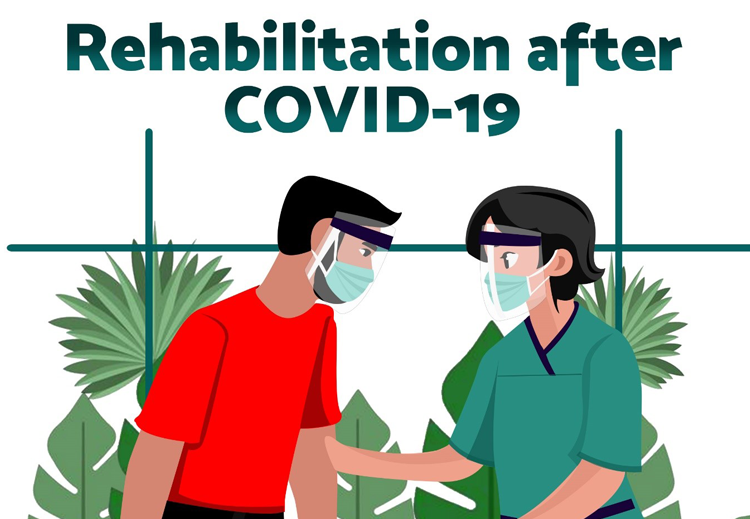
☰ Menu
Menu
October 16, 2020 | 9:12 am

Survivors of critical COVID-19 cases may need rehabilitation due to the effects of extended periods of immobilization, ventilatory support and intubation such as reduced muscle strength, reduced physical functions, and impairments on swallowing and communicating.
Rehabilitation therapy will aid COVID-19 survivors in regaining independence and achieving their highest functional potential.
This program focuses on disabilities related to motor and sensory impairments and restoring physical functioning. Factors such as movement, balance, and coordination are being evaluated to be able to create exercises for strengthening muscles, improving coordination, regaining range of motion and relearning simple motor activities.
This program focuses on enabling patients to perform routines and self-directed activities that are important to them and expected of them at a given time. This program aims to promote independence, restoring pre-morbid skills and functions, using of tools and equipment modified to present condition, creating strategies for coping with demands at home, work, and community, and continuing improvement of current skills and functions through carry-over techniques.
This program focuses on assessing and treating communication problems and speech disorders. It aims to improve communication through articulation therapy and language intervention activities and improve the ability to swallow.
Outsourced program in providing prosthetics and orthoses needed to assist and augment activities of daily living such as wrist hand function, spinal stability, transfers, ambulation and mobility needs.
For inquiries, you may call (046) 481-8000 or (02) 8988-3100 local 1044.
References:
———————————————————————————————————————————————————-
Disclaimer:
All content found on the DLSUMC microsite, including text, graphics, images, audio or other formats were created for general informational purposes only and are not intended or implied to be substitutes for professional medical advice, diagnosis or treatment.
If you think you may have a medical emergency, call your doctor, go to the emergency department, or call your local emergency hotline immediately.
Other Health Articles